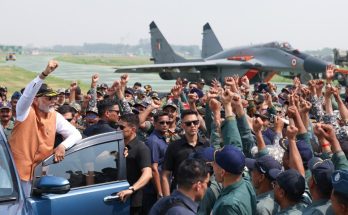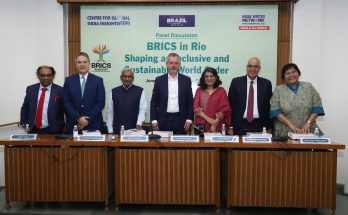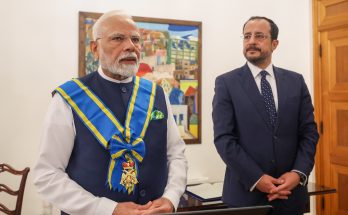
India’s External Affairs Minister S. Jaishankar will hold Quadrilateral talks with his counterparts from the US, Australia and Japan in Tokyo on October 6. The meet is ostensibly concerned with common security issues as well as dealing with the coronavirus pandemic, but the subliminal agenda, of countering China’s excessive behaviour in the region, is not lost on anyone, including China, which swiftly moved to deem the Quad an ‘exclusive clique’, and aired aspersions as to it being a NATO for East and South Asia.
The Quad was conceived by Japan’s Prime Minister Shinzo Abe in 2007 as a forum for discussing common strategic challenges and issues, which, even at the time, involved China. Yet the initial Quad survived only a year, with Australia quitting due to its sensitivities around Chinese diplomatic protests. Since 2017, however, the Quad has got a second wind, as all members are finding themselves in need of like-minded partners in the region and beyond, who can contribute to mutual security, and ensure that rule of law, democracy and human rights are maintained throughout the Asia-Pacific region. The crucial difference lies in two factors: changes in government in all four members (Prime Ministers Modi, Abe and Turnbull, all nationalist conservatives, followed by President Donald Trump in the United States), as well as the behaviour of China itself.
China Factor
The final nail in the coffin has proved to be the coronavirus pandemic. Even as the virus, originally of Chinese origin, continues to rip through the global economy, Beijing persists in coercive and aggressive actions that make it difficult to dismiss popular conspiracy theories that the pandemic and China’s belligerence are not unrelated. From Hong Kong to the oppression of Uyghur Muslims, to the unabashed irredentism displayed by the PLA in recent days against India as well as Japan, Beijing’s actions leave no doubt that it is the pre-eminent threat to peace and security in Asia, and its actions need to be balanced by other powers in the region.
That said, the Quad, while limited currently to security issues, can be said to be lopsided, given the complex interdependence between military strength and economic, political, and social development. India, while a full member of the Quad in terms of security, remains quite far behind the others in terms of these other metrics. Therefore, India’s strategy in the upcoming Quad meeting should be to ensure that along with a discussion of strategy, there should be a comprehensive discussion on ensuring economic linkages, particularly through trade and investment, in order to ensure that India’s holistic development gives solid substance to its military projection. This has added significance as all four economies begin the process of economic disengagement from China, and look for suitable partners elsewhere.
Focus on Northeast
Further, a particular area of focus for India should be its Northeastern region, a strategically important area that nevertheless suffers from a great infrastructural handicap. Despite high growth indicators, as well as excellent human resources, the Northeast has, through years of neglect by New Delhi, remained only tenuously tied to the country’s growth story, and continues to bear the image of a colonial backwater, good only for tourism. This image must change; the Northeast must be developed as a region where economic growth is accomplished, and prosperity shared by all in an inclusive, equitable way. This is doubly urgent as China has continued to use trade routes via Bhutan to sell its goods throughout the region. In this light, Mr. Jaishankar’s recent remarks regarding possible cooperation between India and Japan on connectivity projects in Bangladesh and Myanmar could feasibly be expanded to the Northeastern region of India as well. If the Northeast of India is properly integrated, not only to the national economy, but also to the international economy, it will not only serve as a hotspot of economic activity, but also as a strong bulwark against land grab attempts by Beijing.
India’s Agenda
Any alliance of like-minded partners is only as good as its weakest link, and the Quad is no exception. While India is strategically a peer to the other members of the Quad, it underperforms the others to a great extent in other dimensions. As a result, it, more than all the others, has a responsibility to ensure that its partners in the Quad help it achieve a sounder national footing, through the channels of aid, trade, and development. A prosperous India is a stronger India, which leads to a safer South Asian region, capable of standing up to China. Indian negotiators must not rest at just maintaining the Quad, they must play a motive role in expanding its focus, and to adapt its mandate, to serve the interests of our country. Only then can we stand as true equals.
(Arnab Dasgupta specialises in Japanese language and Japanese studies. He has a PhD from the School of International Studies, JNU, New Delhi).
— The views expressed in this article are solely those of the author, and not the publisher.




